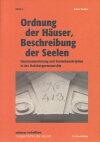CfP: The Political Economy of Academic Journal Publishing
Interessanter Call for Papers:
The Political Economy of Academic Journal Publishing
Call for Papers & Proposal for a Special Issue of ephemera: theory & politics in organization (www.ephemeraweb.org) to be edited by Craig Prichard & Steffen Böhm.
‘Publish or perish', that famous diktat, is without doubt the central, pervasive and unassailable logic governing most academic work in the current period. The central figure, the one around which this decree currently revolves, is, of course, the academic journal article. While the book and perhaps the lecture remain important in some locations, the journal article has become the core currency and the very measure by which academic jobs, careers, reputations and identities are made and traded.
Yet despite all the hours congealed into ‘the article', and the years spent perfecting the craft of writing for journal publications, many of us know very little about the industry that surrounds our work and to which we contribute so much. Of course, we may recall certain events: Some will have noted the sale, for nearly US$1 billion, of Blackwell's 875-strong journal collection to US company Wiley in late 2006. Others will be aware that they can now, if they so wish, purchase their already published papers as individual downloads on Amazon.com. There will be some for whom internet-based open access journals (such as ephemera) or online repositories are now the natural home of their written academic work. There may be others whom have confronted the crisis that surrounds journal subscription pricing and are seeing the demise of library journal collections in their university libraries. And there may be a few among us who recognize those journals and publishers that feature in Ted Bergstrom's hall of shame for the most expensive journals currently published (http://www.journalprices.com). But for all those that recognize such events and processes there are many more for whom such events have ‘taken a while to get our attention', as Ron Kirby, the University of California mathematician who led the editorial revolt against Reed Elsevier's pricing strategy at the journal Topography, said recently.
This special issue is an invitation to begin to change that. It is a call for contributions that directly and critically explore the dynamics, problems, tensions, and issues that surround the political economy of academic journal publishing. Part of this is an invitation to explore alternative ways of organizing the production of academic work, particularly the theory, politics and organization of open access publishing, which is, perhaps, the most promising initiative to challenge corporate forms of journal publishing today. This exploration of alternatives is an acknowledgement that the writer and academic author could be regarded, at various moments, as agent, challenger and also victim of hegemonic regimes. We invite inter-disciplinary contributions from around the world and particularly welcome submissions from countries of the Global South, which have seen particular growth of open access publishing initiatives.
Possible topics include (this is not an exhaustive list):
- Political economy of open access publishing
- Academic publishing and the knowledge society
- How to organize an open access journal?
- Political economy of corporate and university press publishing
- The place of journal publishing in the overall apparatus of academic publishing
- Historical perspectives of academic journal publishing
- The hegemony of UK/US publishing & referencing and its global economy
- Issues of censorship in the process of publishing
- Issues of inclusion/exclusion in journal publishing
- Academic publishing in the Global South
- Desires and identities connected to journal publishing
- The public sphere and journal publishing: Who do we really reach?
- The role of journal publishing in the setup and maintenance of professions and disciplines
- Cases of open access publishing
- The organisation of open access repositories
- Case histories of open access repositories
- Copyright vs Copyleft
- Publishing and language: the hegemony of English
- Intellectual property and the impact on academic publishing
- What is a journal's ‘impact' and how to measure it?
- The specific role of ephemera: theory & politics in organization in the world of journal publishing and potential ‘alternative impact factor measurements'
- Academic evaluation and performance measurement systems (such as the RAE in the UK)
- Publishing outside academia
Full papers should be submitted to the special issue editors via email by 1 November 2008. Papers should be between 5000 and 9000 words; multimedia work is welcome. All submissions should follow ephemera's submission guidelines: http://www.ephemeraweb.org/journal/submit.htm. All relevant submissions will undergo a double blind review process. The special issue is scheduled to be published in late 2009.
Special issue editors:
Craig Prichard
Tari Whakahaere Kaipakihi ,
Te Kunenga Ki Purehuroa
Pouaka Motuhake 11-222
Papaioea, Aotearoa
Department of Management 214
Massey University, Private Bag 11-222
Palmerston North, New Zealand
Phone: +64 (0) 6 356-9099 ext. 2244
Email: c.prichard(ädd)massey(pungt)ac.nz
Steffen Böhm
School of Accounting, Finance and Management
University of Essex
Wivenhoe Park
Colchester CO4 3SQ UK
Phone: +44 (0) 1206 87 3843
Email: steffen)ädd)essex(pungt).ac.uk
[via Linkslog]
The Political Economy of Academic Journal Publishing
Call for Papers & Proposal for a Special Issue of ephemera: theory & politics in organization (www.ephemeraweb.org) to be edited by Craig Prichard & Steffen Böhm.
‘Publish or perish', that famous diktat, is without doubt the central, pervasive and unassailable logic governing most academic work in the current period. The central figure, the one around which this decree currently revolves, is, of course, the academic journal article. While the book and perhaps the lecture remain important in some locations, the journal article has become the core currency and the very measure by which academic jobs, careers, reputations and identities are made and traded.
Yet despite all the hours congealed into ‘the article', and the years spent perfecting the craft of writing for journal publications, many of us know very little about the industry that surrounds our work and to which we contribute so much. Of course, we may recall certain events: Some will have noted the sale, for nearly US$1 billion, of Blackwell's 875-strong journal collection to US company Wiley in late 2006. Others will be aware that they can now, if they so wish, purchase their already published papers as individual downloads on Amazon.com. There will be some for whom internet-based open access journals (such as ephemera) or online repositories are now the natural home of their written academic work. There may be others whom have confronted the crisis that surrounds journal subscription pricing and are seeing the demise of library journal collections in their university libraries. And there may be a few among us who recognize those journals and publishers that feature in Ted Bergstrom's hall of shame for the most expensive journals currently published (http://www.journalprices.com). But for all those that recognize such events and processes there are many more for whom such events have ‘taken a while to get our attention', as Ron Kirby, the University of California mathematician who led the editorial revolt against Reed Elsevier's pricing strategy at the journal Topography, said recently.
This special issue is an invitation to begin to change that. It is a call for contributions that directly and critically explore the dynamics, problems, tensions, and issues that surround the political economy of academic journal publishing. Part of this is an invitation to explore alternative ways of organizing the production of academic work, particularly the theory, politics and organization of open access publishing, which is, perhaps, the most promising initiative to challenge corporate forms of journal publishing today. This exploration of alternatives is an acknowledgement that the writer and academic author could be regarded, at various moments, as agent, challenger and also victim of hegemonic regimes. We invite inter-disciplinary contributions from around the world and particularly welcome submissions from countries of the Global South, which have seen particular growth of open access publishing initiatives.
Possible topics include (this is not an exhaustive list):
- Political economy of open access publishing
- Academic publishing and the knowledge society
- How to organize an open access journal?
- Political economy of corporate and university press publishing
- The place of journal publishing in the overall apparatus of academic publishing
- Historical perspectives of academic journal publishing
- The hegemony of UK/US publishing & referencing and its global economy
- Issues of censorship in the process of publishing
- Issues of inclusion/exclusion in journal publishing
- Academic publishing in the Global South
- Desires and identities connected to journal publishing
- The public sphere and journal publishing: Who do we really reach?
- The role of journal publishing in the setup and maintenance of professions and disciplines
- Cases of open access publishing
- The organisation of open access repositories
- Case histories of open access repositories
- Copyright vs Copyleft
- Publishing and language: the hegemony of English
- Intellectual property and the impact on academic publishing
- What is a journal's ‘impact' and how to measure it?
- The specific role of ephemera: theory & politics in organization in the world of journal publishing and potential ‘alternative impact factor measurements'
- Academic evaluation and performance measurement systems (such as the RAE in the UK)
- Publishing outside academia
Full papers should be submitted to the special issue editors via email by 1 November 2008. Papers should be between 5000 and 9000 words; multimedia work is welcome. All submissions should follow ephemera's submission guidelines: http://www.ephemeraweb.org/journal/submit.htm. All relevant submissions will undergo a double blind review process. The special issue is scheduled to be published in late 2009.
Special issue editors:
Craig Prichard
Tari Whakahaere Kaipakihi ,
Te Kunenga Ki Purehuroa
Pouaka Motuhake 11-222
Papaioea, Aotearoa
Department of Management 214
Massey University, Private Bag 11-222
Palmerston North, New Zealand
Phone: +64 (0) 6 356-9099 ext. 2244
Email: c.prichard(ädd)massey(pungt)ac.nz
Steffen Böhm
School of Accounting, Finance and Management
University of Essex
Wivenhoe Park
Colchester CO4 3SQ UK
Phone: +44 (0) 1206 87 3843
Email: steffen)ädd)essex(pungt).ac.uk
[via Linkslog]
adresscomptoir -
Wissenschaft - Do, 21. Feb. 2008, 09:20









